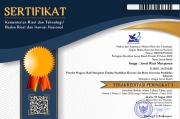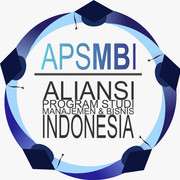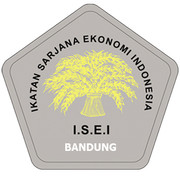Memorable Tourist Experience and its Impact on Tourist Engagement
Abstract
Keywords
Full Text:
PDFReferences
Abdullah, D., Jayaraman, K., & Kamal, S. B. M. (2016). A Conceptual Model of Interactive Hotel Website: The Role of Perceived Website Interactivity and Customer Perceived Value Toward Website Revisit Intention. Procedia Economics and Finance, 37(16), 170-175. https://doi.org/10.1016/s2212-5671(16)30109-5
Abubakar, A. M., Ilkan, M., Meshall Al-Tal, R., & Eluwole, K. K. (2017). eWOM, revisit intention, destination trust and gender. Journal of Hospitality and Tourism Management, 31, 220-227. https://doi.org/10.1016/j.jhtm.2016.12.005
Alba, J. W., & Williams, E. F. (2013). Pleasure principles: A review of research on hedonic consumption. Journal of consumer psychology, 23(1), 2-18. https://doi.org/10.1016/j.jcps.2012.07.003
Ali, F., Ryu, K., & Hussain, K. (2016). Influence of experiences on memories, satisfaction and behavioral intentions: A study of creative tourism. Journal of Travel & Tourism Marketing, 33(1), 85-100. https://doi.org/10.1080/10548408.2015.1038418
Brooker, E., & Joppe, M. (2013). Trends in camping and outdoor hospitality—An international review. Journal of Outdoor Recreation and Tourism, 3-4, 1-6. https://doi.org/10.1016/j.jort.2013.04.005
Callanan, M., & Thomas, S. (2005). Niche tourism: Contemporary issues, trends, and cases. Routledge
Canh, N. P., & Thanh, S. D. (2020). Domestic tourism spending and economic vulnerability. Annals of Tourism Research, 85, 103063. https://doi.org/10.1016/j.annals.2020.103063
Chandralal, L., Rindfleish, J., & Valenzuela, F. (2015). An Application of Travel Blog Narratives to Explore Memorable Tourism Experiences. Asia Pacific Journal of Tourism Research, 20(6), 680-693. https://doi.org/10.1080/10941665.2014.925944
Chang, L. L., F. Backman, K., & Chih Huang, Y. (2014). Creative tourism: a preliminary examination of creative tourists’ motivation, experience, perceived value and revisit intention. International Journal of Culture, Tourism and Hospitality Research, 8(4), 401-419. https://doi.org/10.1108/IJCTHR-04-2014-0032
Chen, C.-C., & Petrick, J. F. (2013). Health and Wellness Benefits of Travel Experiences: A Literature Review. Journal of Travel Research, 52(6), 709-719. https://doi.org/10.1177/0047287513496477
Chi, C. G. Q., & Qu, H. (2008). Examining the structural relationships of destination image, tourist satisfaction and destination loyalty: An integrated approach. Tourism management, 29(4), 624-636. https://doi.org/10.1016/j.tourman.2007.06.007
Cole, S. T., & Chancellor, H. C. (2009). Examining the festival attributes that impact visitor experience, satisfaction and re-visit intention. Journal of Vacation Marketing, 15(4), 323-333. https://doi.org/10.1177/1356766709335831
Creswell, J. W., & Creswell, J. D. (2017). Research design: Qualitative, quantitative, and mixed methods approaches. Sage publications.
Csikszentmihalyi, M. (2000). Beyond boredom and anxiety. Jossey-bass.
Ferns, B. H., & Walls, A. (2012). Enduring travel involvement, destination brand equity, and travelers’ visit intentions: A structural model analysis. Journal of Destination Marketing & Management, 1(1-2), 27-35. https://doi.org/10.1016/j.jdmm.2012.07.002
Fotiadis, A., Polyzos, S., & Huan, T.-C. T. C. (2021). The good, the bad and the ugly on COVID-19 tourism recovery. Annals of Tourism Research, 87, 103117. https://doi.org/10.1016/j.annals.2020.103117
Ghozali, I. (2018). Aplikasi Analisis Multivariate dengan Program IBM SPSS 25. Badan Penerbit Universitas Diponegoro.
Gössling, S., Scott, D., & Hall, C. M. (2020). Pandemics, tourism and global change: a rapid assessment of COVID-19. Journal of sustainable tourism, 29(1), 1-20. https://doi.org/10.1080/09669582.2020.1758708
Harrigan, P., Evers, U., Miles, M., & Daly, T. (2017). Customer engagement with tourism social media brands. Tourism management, 59, 597-609. https://doi.org/10.1016/j.tourman.2016.09.015
Hosany, S., & Witham, M. (2010). Dimensions of Cruisers’ Experiences, Satisfaction, and Intention to Recommend. Journal of Travel Research, 49, 351-364. https://doi.org/10.1177/0047287509346859
Hsu, C., & Crotts, J. C. (2006). Segmenting mainland Chinese residents based on experience, intention and desire to visit Hong Kong. International Journal of Tourism Research, 8(4), 279-287. https://doi.org/10.1002/jtr.575
Huang, Y. C., & Liu, C. H. S. (2017). Moderating and mediating roles of environmental concern and ecotourism experience for revisit intention. International Journal of Contemporary Hospitality Management, 29(7), 1854-1872. https://doi.org/10.1108/IJCHM-12-2015-0677
Kim, J. H., Ritchie, J. R. B., & McCormick, B. (2012). Development of a scale to measure Memorable Tourism Experiences. Journal of Travel Research, 51(1), 12-25. https://doi.org/10.1177/0047287510385467
Kim, J., & Fesenmaier, D. R. (2017). Sharing tourism experiences: The posttrip experience. Journal of travel research, 56(1), 28-40. https://doi.org/10.1177/0047287515620491
Komppula, R., Ilves, R., & Airey, D. (2016). Social holidays as a tourist experience in Finland. Tourism Management, 52, 521–532. https://doi.org/10.1016/j.tourman.2015.07.016
Konuk, F. A. (2019). The influence of perceived food quality, price fairness, perceived value and satisfaction on customers’ revisit and word-of-mouth intentions towards organic food restaurants. Journal of Retailing and Consumer Services, 50, 103-110. https://doi.org/10.1016/j.jretconser.2019.05.005
Kumar, V., & Pansari, A. (2016). Competitive advantage through engagement. Journal of marketing research, 53(4), 497-514. https://doi.org/10.1509/jmr.15.0044.
Lin, C. H., & Kuo, B. Z. L. (2016). The Behavioral Consequences of Tourist Experience. Tourism Management Perspectives, 18, 84–91. https://doi.org/10.1016/j.tmp.2015.12.017
Lin, C.-H. (2014). Effects of Cuisine Experience, Psychological Well-Being, and Self-Health Perception on the Revisit Intention of Hot Springs Tourists. Journal of Hospitality & Tourism Research, 38(2), 243-265. https://doi.org/10.1177/1096348012451460
Meng, B., & Han, H. (2018). Working-holiday tourism attributes and satisfaction in forming word-of-mouth and revisit intentions: Impact of quantity and quality of intergroup contact. Journal of Destination Marketing & Management, 9, 347-357. https://doi.org/10.1016/j.jdmm.2018.03.009
Muhammad, A., Aisjah, S., & Rofiq, A. (2018). Penilaian Memorable Tourism Experience sebagai Faktor Penentu Daya Saing Destinasi Wisata dengan Menggunakan Pendekatan Rapid Appraisal (Rap). MIX: Jurnal Ilmiah Manajemen, 8(2), 272-291. https://doi.org/10.22441/mix.2018.v8i2.006.
Palmatier, R. W., Houston, M. B., & Hulland, J. (2018). Review articles: Purpose, process, and structure. Journal of the Academy of Marketing Science, 46, 1-5. https://doi.org/10.1007/s11747-017-0563-4
Pansari, A., & Kumar, V. (2017). Customer engagement: the construct, antecedents, and consequences. Journal of the Academy of Marketing Science, 45, 294-311. https://doi.org/10.1007/s11747-016-0485-6.
Park, J. Y., Bufquin, D., & Back, R. M. (2019). When do they become satiated? An examination of the relationships among winery tourists’ satisfaction, repeat visits and revisit intentions. Journal of Destination Marketing and Management, 11, 231–239. https://doi.org/10.1016/j.jdmm.2018.04.004
Purba, J. H. V., Fathiah, R., & Steven, S. (2021). The impact of Covid-19 pandemic on the tourism sector in Indonesia. Riset: Jurnal Aplikasi Ekonomi Akuntansi dan Bisnis, 3(1), 389-401. https://doi.org/10.37641/riset.v3i1.82
Rasoolimanesh, S. M., Khoo-Lattimore, C., Md Noor, S., Jaafar, M., & Konar, R. (2021). Tourist engagement and loyalty: gender matters?. Current Issues in Tourism, 24(6), 871-885. https://doi.org/10.1080/13683500.2020.1765321
Rasoolimanesh, S. M., Seyfi, S., Hall, C. M., & Hatamifar, P. (2021). Understanding memorable tourism experiences and behavioural intentions of heritage tourists. Journal of Destination Marketing & Management, 21, 100621. https://doi.org/10.1016/j.jdmm.2021.100621
Rather, R. A. (2021). Demystifying the effects of perceived risk and fear on customer engagement, co-creation and revisit intention during COVID-19: A protection motivation theory approach. Journal of Destination Marketing & Management, 20, 100564. https://doi.org/10.1016/j.jdmm.2021.100564.
Škare, M., Soriano, D. R., & Porada-Rochoń, M. (2021). Impact of COVID-19 on the travel and tourism industry. Technological Forecasting and Social Change, 163, 120469. https://doi.org/10.1016/j.techfore.2020.120469
So, K. K. F., King, C., & Sparks, B. (2014). Customer Engagement With Tourism Brands: Scale Development and Validation. Journal of Hospitality & Tourism Research, 38(3), 304-329. https://doi.org/10.1177/1096348012451456
So, K. K. F., King, C., Sparks, B. A., & Wang, Y. (2016). The Role of Customer Engagement in Building Consumer Loyalty to Tourism Brands. Journal of Travel Research, 55(1), 64-78. https://doi.org/10.1177/0047287514541008
Sthapit, E., & Coudounaris, D. N. (2018). Memorable tourism experiences: Antecedents and outcomes. Scandinavian Journal of Hospitality and Tourism, 18(1), 72-94. https://doi.org/10.1080/15022250.2017.1287003.
Subramaniam, T., Samdin, Z., Ramachandran, S., & Kunasekaran, P. (2019). Memorable ecotourism experiences in Taman Negara, Pahang. International Journal of Recent Technology and Engineering, 7(2), 25-33.
Sugathan, P., & Ranjan, K. R. (2019). Co-creating the tourism experience. Journal of Business Research, 100, 207-217. https://doi.org/10.1016/j.jbusres.2019.03.032
Tan, W. K. (2017). Repeat visitation: A study from the perspective of leisure constraint, tourist experience, destination images, and experiential familiarity. Journal of destination marketing & management, 6(3), 233-242. https://doi.org/10.1016/j.jdmm.2016.04.003
Tung, V. W. S., & Ritchie, J. B. (2011). Exploring the essence of memorable tourism experiences. Annals of tourism research, 38(4), 1367-1386. https://doi.org/10.1016/j.annals.2011.03.009.
Um, S., Chon, K., & Ro, Y. (2006). Antecedents of revisit intention. Annals of Tourism Research, 33(4), 1141–1158. https://doi.org/10.1016/j.annals.2006.06.003
Vivek, S. D., Beatty, S. E., & Morgan, R. M. (2012). Customer engagement: Exploring customer relationships beyond purchase. Journal of marketing theory and practice, 20(2), 122-146. https://doi.org/10.2753/MTP1069-6679200201
Wang, W., Chen, J. S., Fan, L., & Lu, J. (2012). Tourist experience and Wetland parks: A case of Zhejiang, China. Annals of Tourism Research, 39(4), 1763–1778. https://doi.org/10.1016/j.annals.2012.05.029
Weisstein, F. L., Song, L., Andersen, P., & Zhu, Y. (2017). Examining impacts of negative reviews and purchase goals on consumer purchase decision. Journal of Retailing and Consumer Services, 39, 201-207. https://doi.org/10.1016/j.jretconser.2017.08.015
Yaoyuneyong, G., Foster, J., Johnson, E., & Johnson, D. (2016). Augmented reality marketing: Consumer preferences and attitudes toward hypermedia print ads. Journal of Interactive Advertising, 16(1), 16-30. https://doi.org/10.1080/15252019.2015.1125316.
Yuksel, A., Yuksel, F., & Bilim, Y. (2010). Destination attachment: Effects on customer satisfaction and cognitive, affective and conative loyalty. Tourism management, 31(2), 274-284. https://doi.org/10.1016/j.tourman.2009.03.007.
DOI: https://doi.org/10.17509/image.2024.009
Refbacks
- There are currently no refbacks.
Copyright (c) 2024 Heny Hendrayati, Rayhan Syahbudiman,Ahmad Hudaiby Galih Kusumah, Frederic Marimon, Marhadi

This work is licensed under a Creative Commons Attribution-ShareAlike 4.0 International License.
Image : Jurnal Riset Manajemen is licensed under a Creative Commons Attribution-ShareAlike 4.0 International License
View My Stats



